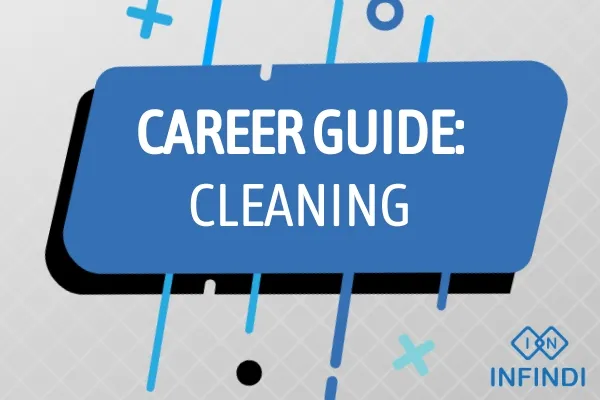For those with an eye for cleanliness and a commitment to maintaining pristine environments, cleaning jobs offer a crucial and essential career path. Whether you’re an experienced cleaning professional or someone exploring entry-level opportunities, understanding the intricacies of jobs in cleaning is vital. This article aims to provide a comprehensive guide to cleaning jobs, addressing duties, salary expectations, job descriptions, skills, qualifications, education and training requirements, experience prerequisites, frequently asked questions, and daily tasks.
1. Duties and Responsibilities
Professionals in the cleaning industry play a pivotal role in ensuring hygiene, cleanliness, and order in various settings. Common duties and responsibilities include:
- Surface Cleaning: Dusting, sweeping, mopping, and vacuuming surfaces in residential or commercial spaces.
- Sanitization: Disinfecting and sanitizing surfaces, including high-touch areas.
- Waste Management: Proper disposal of waste and ensuring recycling practices when applicable.
- Equipment Maintenance: Keeping cleaning equipment in good condition and reporting any malfunctions.
- Inventory Management: Monitoring and restocking cleaning supplies as needed.
2. Salary Expectations
The salary for jobs in cleaning varies based on factors such as experience, industry, and the scale of cleaning responsibilities. Entry-level positions may start at around $25,000 annually, while experienced cleaning professionals in supervisory roles can earn well over $40,000. Industries like commercial cleaning services, healthcare, and hospitality tend to offer competitive salaries.
3. Possible Job Descriptions
Cleaning roles encompass a range of positions, each contributing to the cleanliness and hygiene of different environments:
- Janitor: Performing general cleaning duties in offices, schools, or public spaces.
- Housekeeper: Cleaning and organizing residential spaces, including bedrooms, kitchens, and common areas.
- Custodian: Maintaining cleanliness in institutional settings such as schools, hospitals, or government buildings.
- Window Cleaner: Specializing in cleaning and maintaining windows in various settings.
- Supervisor/Manager: Overseeing cleaning operations, managing staff, and ensuring quality standards.
4. Skills and Qualifications
Successful cleaning professionals possess a combination of attention to detail, physical stamina, and organizational skills. Key skills include:
- Attention to Detail: Ensuring thorough and precise cleaning of all designated areas.
- Time Management: Efficiently completing tasks within designated timeframes.
- Physical Stamina: Performing physically demanding tasks for extended periods.
- Communication: Effectively communicating with team members and clients.
- Problem-Solving: Addressing and resolving cleaning-related issues.
5. Education and Training Requirements
While formal education is not always required for entry-level cleaning positions, on-the-job training is common. Specialized cleaning roles in healthcare or industrial settings may require specific certifications or training programs.
6. Experience Requirements
Entry into cleaning jobs often does not necessitate extensive experience, making them accessible for individuals entering the workforce. However, advancement to supervisory or managerial roles may require several years of relevant cleaning experience.
7. Frequently Asked Questions
Q: Are there opportunities for part-time or flexible cleaning jobs?
A: Yes, many cleaning positions offer part-time or flexible schedules to accommodate various preferences and lifestyles.
Q: What safety measures are important in cleaning jobs?
A: Proper training in handling cleaning chemicals, using personal protective equipment, and following safety protocols is crucial in cleaning jobs.
Q: Can I specialize in a particular type of cleaning, such as industrial cleaning?
A: Yes, cleaning professionals can specialize in various areas, including industrial, healthcare, or specialized cleaning services based on training and experience.
8. Daily Tasks and To-Do Lists
The daily tasks of a cleaning professional can vary based on their specific role, but a typical to-do list may include:
- Cleaning and sanitizing surfaces and high-touch areas.
- Disposing of waste and ensuring proper recycling practices.
- Restocking cleaning supplies and reporting inventory needs.
- Performing routine maintenance on cleaning equipment.
Communicating with clients or team members about specific cleaning requirements.
In conclusion, a career in cleaning offers a vital and impactful role in maintaining clean and hygienic environments. Whether you’re starting your cleaning career or aiming for advancement, understanding the duties, qualifications, and daily tasks associated with cleaning jobs will set you on the path to success. Explore opportunities, showcase your attention to detail, and embark on a rewarding career in the essential world of cleaning.

